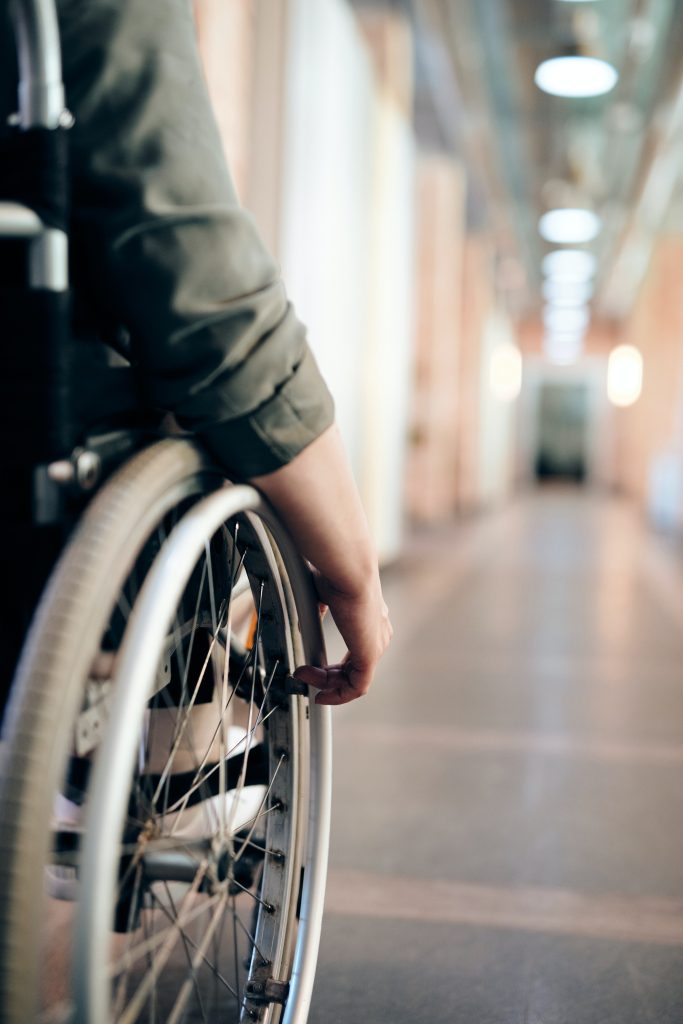
Close
Up to 1 in 4 adults [1] in the United States have some sort of disabling condition. A disabling condition [2] or a disability, can encompass physical, intellectual and developmental disabilities, as well as mental illness and substance use disorders. Due to the challenges that come along with living with a disability, these individuals are disproportionately more likely to experience homelessness. In Tulsa, 61% of Point-in-Time (PIT) count [3] respondents this year reported having a disabling condition.
There is a strong correlation between homelessness and disability. The disproportionate effect that homelessness has on folks with disabilities can be attributed to a number of factors, including accessibility issues, healthcare expenses, stigma and discrimination, and limited incomes. Research evidence from the National Disability Institute reveals that people living with disabilities in America are more than twice as likely [4] to live in poverty than those living without disabilities, pushing them closer to the risk of homelessness.
Disregarding these health concerns only intensifies the cost that the issue of homelessness imposes on various parties, ranging from taxpayers to healthcare institutions. The need for intervention before emergency care is recognized by A Way Home for Tulsa (AWH4T) service providers, as there are two no-barrier health clinics available to Tulsans experiencing homelessness that are operated by AWH4T partners. These clinics include Morton Comprehensive Health Services, and the Tulsa Day Center Clinic, both of which are open Monday-Friday and offer a variety of services. There are also a number of Family and Children’s walk-in clinics around Tulsa that offer services to those in need of mental health services.
In an attempt to reduce the number of ailments individualswere contracting as a result of experiencing homelessness, Connecticut Coalition to End Homelessness has implemented medical respite programs. [5] Through this innovative collaboration between homeless providers and hospitals, which includes case management focused on housing, patient navigation to help coordinate care, visiting nursing service, and transportation to appointments, these partnerships are improving health outcomes for these individuals, including reducing their rate of re-admission to the hospital. Proactive approaches to the challenges facing individuals living with disabilities are effective at deterring more compounded issues.
Empowering individuals with disabilities begins with acknowledging and breaking down the barriers that contribute to their vulnerability, a major one being housing instability. Once a person with a disability becomes homeless, or at risk of homelessness, the first step that should be taken to address their challenges is identifying stable, accessible housing. This is in line with the teachings of Housing First and is the proven most effective method [6] of addressing homelessness. Access Living, a nonprofit out of Chicago, is a leading force in the disability community and recognizes the need for more efforts to further increase access to affordable, accessible, integrated housing. Their mission is to ‘Ignite disability power and pride, provide critical services, and break down systemic barriers to create a stronger, more inclusive society.’ [7] This mission aligns with AWH4T’s goals to address the affordable housing crisis.
A cornerstone of addressing homelessness through Housing First is the use of Permanent Supportive Housing (PSH) which provides stable and permanent housing alongside individualized supportive services. [8] PSH has seen massive success at reducing homelessness, as it has a 95% retention rate in Tulsa. [9] Hudson Villas, a PSH living community, provides 24/7 supportive services to their residents, and has seen massive success within their program from doing so. Increased access to affordable, accessible housing empowers folks, including those with disabling conditions, to live without the fear of homelessness or housing insecurity.

Housing Solutions © 2020. All rights reserved.

